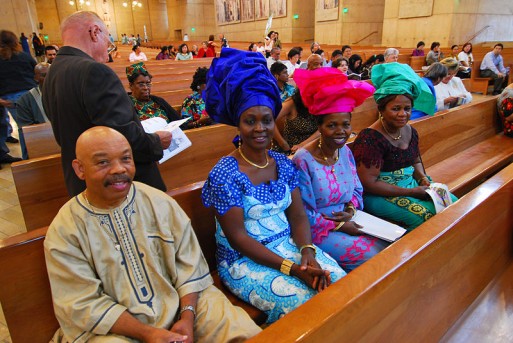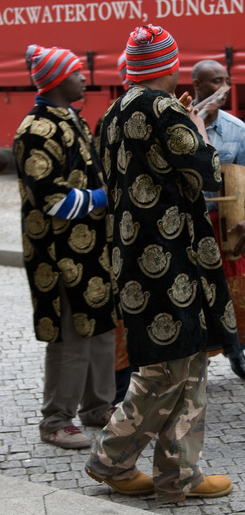
Credit: Wikipedia
Funerals in Igbo culture — the culture of one of Africa’s largest ethnic groups — can be a time for both celebration and for mourning. With a life expectancy in the country extending just upwards of 54 years (as of 2012), funerals are customarily times of celebration for those who pass away over the age of 60, just as much as they are times of mourning for those that are cut down in the prime of their youth. And while traditions may still vary based on individual religion and region, the heart of Igbo heritage is still practiced today in many ways through the extensive practices that are adhered to during the burial process.
Funerals are customarily times of celebration for those who pass away over the age of 60, just as much as they are times of mourning for those that are cut down in the prime of their youth.
The burial process for a member of the Igbo group comes in two parts. The actual burial for Igbo people is broken up into two separate parts. The first burial is traditionally the lesser of the two. It is a short service used primarily for short-term mourning. This is the ceremony where the physical body, or a simulacrum, such as a lock of hair, is physically buried in the hometown of the departed. This service is held primarily for mourning and during this service, the departed is often buried with personal effects that they can take with them into the underworld and onward in their reincarnated life.

Credit: WIkipedia
The second burial is known as the Ikwa Ozu — a combination of the word “Ikwa,” meaning mourning or sewing, and “Ozu,” meaning body. This part of the burial process is cherished as a lavish celebration of life, and it can be held many weeks after the initial burial. While the first burial is marked as a time for funeral-goers to pay their last respects, the Ikwa Ozu is a celebration of one last rite of passage that is meant to guide the spirit of the deceased to his or her rightful place among his or her ancestors.
The second burial is known as the Ikwa Ozu — a combination of the word “Ikwa,” meaning mourning or sewing, and “Ozu,” meaning body.
In western terms, this second burial might closely resemble something along the lines of an Irish Wake, but the festivities of the Ikwa Ozu have a much more spiritual twist. While the merrymaking can also be considered an excuse to show off or revel in the worldly possessions that were left behind by a cherished person, it is also considered one last hurrah in which the cost that is thrown down for the festivities shall be paid back in turn by the spirit that is being celebrated.
Between the first and second burial, Igbo culture celebrates the duality of life. While sadness may go unchecked in the first burial, funeral-goers will make up for wails of grief tenfold by celebrating lavishly when the Ikwa Ozu rolls around. And it is in the culmination of these two sacred ceremonies that cherished friends and family may begin on the path to overcoming grief, as the spirit joins its ancestral home.
Related SevenPonds Articles:

 Mourning and Celebration of Life in the Burial Rites of Igbo Culture
Mourning and Celebration of Life in the Burial Rites of Igbo Culture


 “Help Me, Helen”
“Help Me, Helen”
 Recovering Cremation Remains After the Los Angeles Fires
Recovering Cremation Remains After the Los Angeles Fires
 “As Tears Go By” by Marianne Faithfull
“As Tears Go By” by Marianne Faithfull














